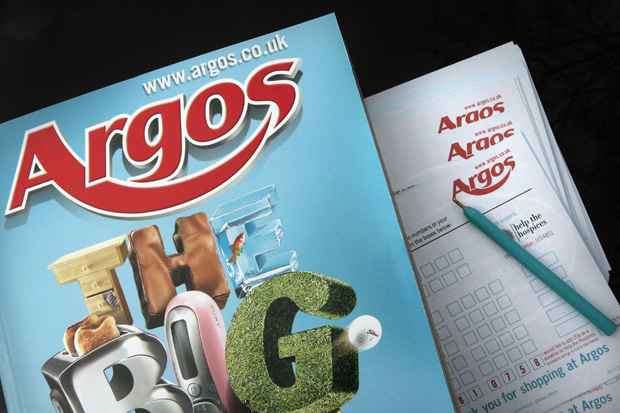When I was at school in the 1970s, some of the richer kids would come back from their summer holidays with jaw-dropping tales about the wondrous places they had visited. Chief among them, as I remember, was Schiphol airport. ‘It was amazing,’ they would say. ‘There were shops and restaurants and stuff,’ and you could buy a Walkman for some insanely low price.
A few others vainly tried to trump the Schiphol crowd by fancifully claiming to have been to Frankfurt airport and seen an actual sex shop there — an assertion widely disbelieved, certainly by me, until I used the airport 15 years later and discovered it was perfectly true. (At the time the shop was called Dr Müller’s — Germans being the kind of people who like to buy sex toys from someone with suitable qualifications.)
Later on, the mantle for ‘amazing airports I have visited’ passed from Schiphol to Dubai and then Singapore. But, bit by bit, all major airports became like shopping centres. And more shopping centres sprang up, which became a bit like airports. The novelty of looking at £200 belts before catching a plane diminished. Instead people started saying things like ‘London City Airport is brilliant. You can just turn up 30 minutes before take-off, and you don’t have to traverse Bluewater before boarding the plane.’ I suspect an unspoken part of Ryanair’s appeal is the childish joy of using those tiny French rural airports where all you can buy is a coffee and a bag of Haribo but you don’t have to spend three hours in a Ballardian dystopia before a one-hour flight. Yet without the experience of large airports, we would think these small airports were rubbish.
The interesting thing here is that we don’t have actual preferences. We only discover what we want by contrasting them with other things. Forty years or so ago, someone started charging more for cheese by cutting off the rind and selling it as ‘rindless cheddar’. Today you charge more by leaving the rind on and selling it as artisan cheese. Food shops were once clinically clean and shiny. Now you want them to look like a farmers’ market, the prices written in chalk.
The idea that people have stable, cardinal preferences is economic nonsense. Big supermarkets seemed amazing when all we had was small shops; small shops suddenly seemed magically convenient once we got used to big shops. Even vinyl records are cool again. For every trend, a counter-trend is waiting in the wings.
Recently, perhaps partly as a joke, someone at work recommended to a Brazilian colleague who had recently arrived in London that she should buy materials for her new flat at Argos. The woman returned scandalised, refusing to believe such a crazy retail concept could exist. Someone claimed to have seen her in the shop, gesticulating wildly, and pleading with the man behind the counter: ‘Please, meester, where is all ze stuff?’
Argos is a bizarre thing: the tuatara or duck-billed platypus of the retail world. It arose almost by accident as a chain of outlets for people to redeem their Green Shield Stamps. Only later, when he was on holiday in Greece (hence the name) did its boss have the idea of turning it into a chain of miniature department stores.
Now Sainsbury’s has bought the chain for £1.4 billion. Given my counter-trend theory, I think this is shrewd. Soon, I suspect, online shoppers will notice that the supposed convenience of having stuff delivered to your home is not very convenient at all, and the click-and-collect model accidentally pioneered by Argos will become the new normal. I rather hope so. Someone has to compete with Amazon, after all.
Got something to add? Join the discussion and comment below.
Get 10 issues for just $10
Subscribe to The Spectator Australia today for the next 10 magazine issues, plus full online access, for just $10.
Rory Sutherland is vice-chairman of Ogilvy Group UK.
You might disagree with half of it, but you’ll enjoy reading all of it. Try your first month for free, then just $2 a week for the remainder of your first year.















Comments
Don't miss out
Join the conversation with other Spectator Australia readers. Subscribe to leave a comment.
SUBSCRIBEAlready a subscriber? Log in